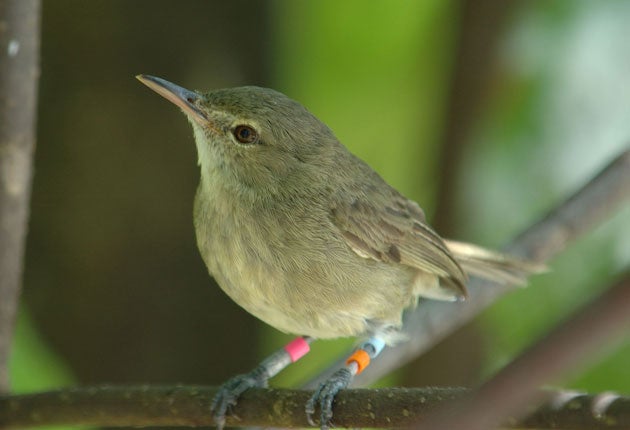Revealed: the birds who play away from home

Your support helps us to tell the story
From reproductive rights to climate change to Big Tech, The Independent is on the ground when the story is developing. Whether it's investigating the financials of Elon Musk's pro-Trump PAC or producing our latest documentary, 'The A Word', which shines a light on the American women fighting for reproductive rights, we know how important it is to parse out the facts from the messaging.
At such a critical moment in US history, we need reporters on the ground. Your donation allows us to keep sending journalists to speak to both sides of the story.
The Independent is trusted by Americans across the entire political spectrum. And unlike many other quality news outlets, we choose not to lock Americans out of our reporting and analysis with paywalls. We believe quality journalism should be available to everyone, paid for by those who can afford it.
Your support makes all the difference.Female birds paired for life in apparently monogamous relationships seek out sex with other males in order to boost the genetic fitness of their offspring, scientists have discovered in a pioneering experiment involving warblers living on an island in the Seychelles.
Since the advent of DNA fingerprinting it has been possible to test the paternity of the offspring of seemingly monogamous species and, to the astonishment of scientists, many the offspring in such monogamous species appear to have been fathered by males other than the ones involved in rearing the brood.
The infidelity was inexplicable because only one male helps the female to raise the brood and the infidelity could result in him abandoning the nest.
This led scientists to suggest that perhaps the female was seeking better genes behind the back of her male partner in order to boost the genetic fitness of her offspring without the risk of losing the help of her male partner. Now scientists have found strong evidence in support of this hypothesis by studying in detail the lives and mating habits of 97 per cent of the warblers that live on the island of Cousin in the Seychelles, where the birds have been ringed and studied since 1997 by scientists led by David Richardson of the University of East Anglia.
The study, published in the journal Molecular Ecology, followed the fate of 160 birds hatched on the island between 1997 and 1999 over a period of 10 years. Although the birds appear to be monogamous in lifetime pairings, the females were found to have engaged in "extra-pair copulation".
The scientists found that the offspring of such female infidelity have a higher genetic diversity in crucial disease-detecting genes, known as the major histocompatibility complex (MHC), than would have been the case had they mated with their regular partner.
"We did not find any evidence for genetic benefits of extra-pair fertilisations per se, as on average extra-and within-pair offspring survived equally well. However, by not being faithful to a pair male with low MHC diversity, females are ensuring that their offspring do not end up with below-average levels of MHC diversity and therefore lower survival," Dr Richardson said.
Female warblers may be able to detect when their regular partner has a comparatively low genetic diversity, which leads them to stray to more highly diverse strangers.
Join our commenting forum
Join thought-provoking conversations, follow other Independent readers and see their replies
Comments